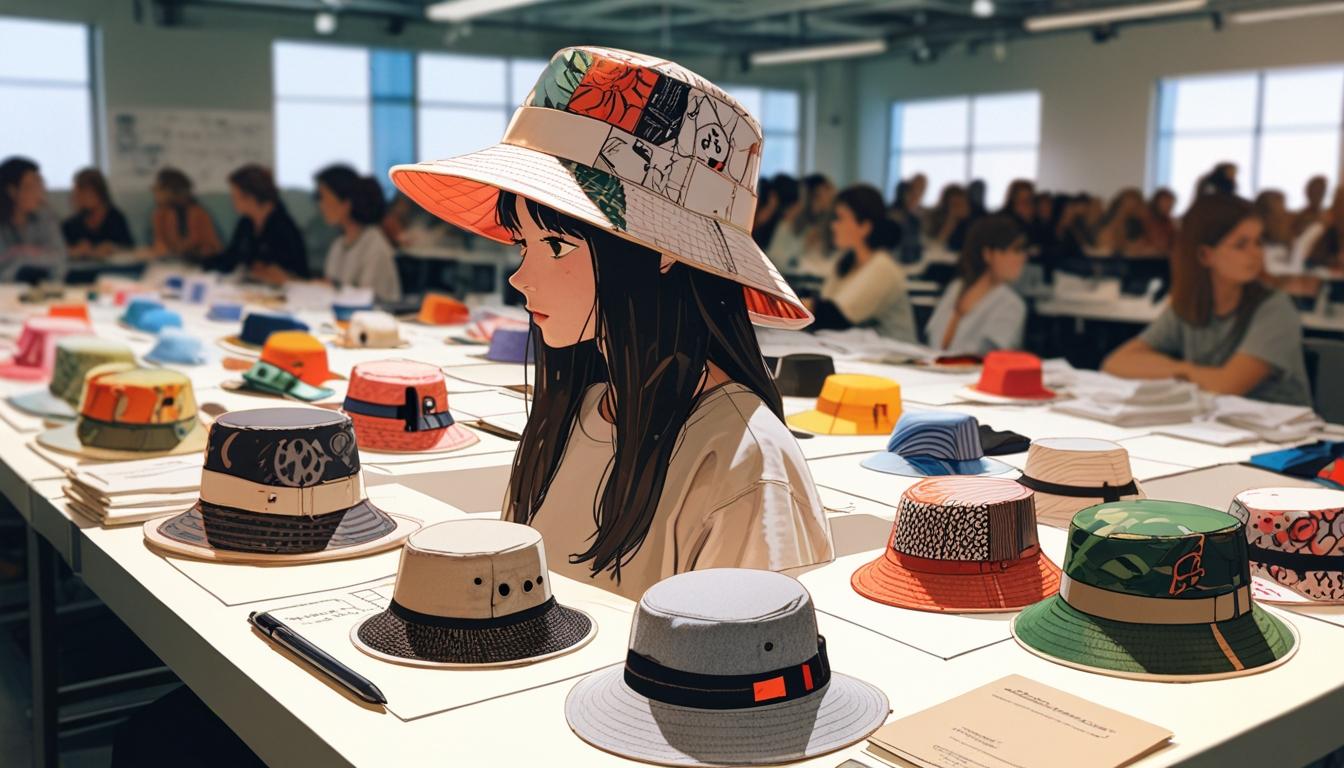Clara Padgham of the University of Wisconsin-Madison wins the NEXTILE Challenge, showcasing innovation in sustainable textiles with her soy-based bucket hat.
Clara Padgham, a student from the University of Wisconsin-Madison, has been named the national winner of the NEXTILE: The Soy in Textile Design Challenge, an initiative aimed at fostering innovation in sustainable textiles. This announcement was made at the annual event held in St. Louis, which focuses on the rising potential of soy-based materials in the fashion and textile industries.
In its second year, the NEXTILE competition encourages students to explore the use of sustainable textiles, specifically those made from soy. Participants received a soy-based product design kit that included a range of materials: soy silk, soy cashmere, organic pigment, and soy wax. They were tasked with creating a textile that could be utilized in various sectors, such as fashion or décor, within a three-week timeframe.
Padgham’s winning entry is a bucket hat crafted from a soy woven textile that incorporates soy silk yarn among other soy-based components. As an acknowledgment of her achievement, she will receive a scholarship of $1,000. “Consumers value sustainability – they want to know their money is going to a purchase that is both eco-friendly and can last,” Padgham remarked. She further detailed the qualities of her design, noting that, “The benefits of soy lend themselves very well to the summer hat I designed. It is a breathable textile, with moisture wicking abilities and low heat retention. Further, soy yarn is durable, creating a long-lasting product.”
The judging panel for the competition included representatives from design and textile industries, U.S. soybean farmers, and members of the Qualified State Soybean Boards. They evaluated the entries based on criteria such as originality, innovation, practicality, and execution. Carla Schultz, a Michigan soybean farmer and director of the United Soybean Board, expressed her enthusiasm regarding this year’s submissions. “We saw another year of incredible talent in the NEXTILE Challenge. The students who participated really displayed creativity and innovation in their designs. It was exciting to see how their soy-based textiles could be utilized in the sustainable products market,” Schultz stated.
In addition to Padgham’s success, Brooke Cowan from Washington University-St. Louis was named the runner-up for her Bio-vera™ clutch design, earning a $500 scholarship. This year’s competition saw participation from students across 21 universities, colleges, and institutes.
The NEXTILE competition underscores a long-standing trend in which U.S. Soy serves as a vital component for product innovation, a concept dating back to Henry Ford’s use of soy-based materials in automobile design. Today, soy is integrated into an extensive range of products across numerous industries, with over 1,000 soy-based items available on the market, including textiles, tires, and biofuels.
U.S. soybean farmers, alongside industry partners, are committed to advancing sustainable solutions that address pressing global challenges such as food security and climate change. The NEXTILE initiative aims to empower the new generation of designers to innovate with eco-friendly and biobased textile solutions, reflecting a growing emphasis on sustainability in various manufacturing sectors.
Source: Noah Wire Services




